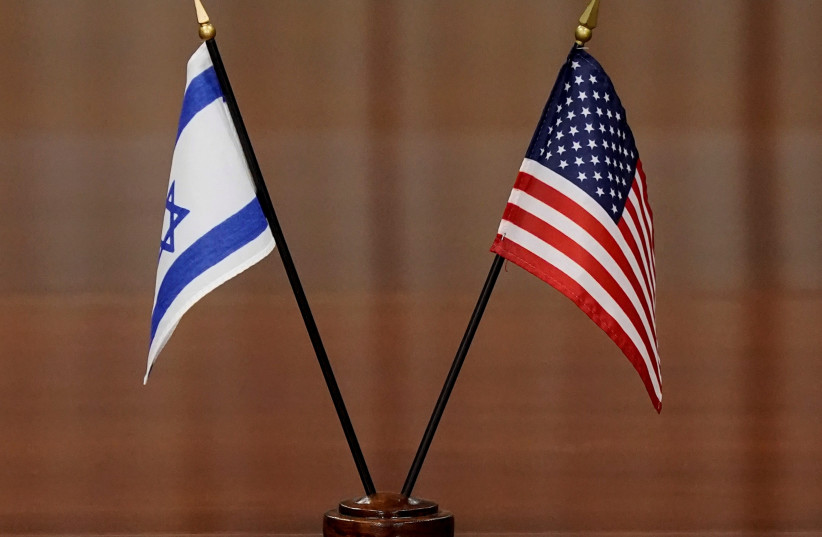An idea that has been kicking around since the early 1950s is enjoying a renaissance due to talk of a grand US-Saudi-Israel deal: a US-Israel mutual defense treaty.
The Saudis, in their quest for security assurances from the US as a condition for normalizing ties with Israel, are reportedly keen on a mutual defense treaty with the US themselves.
Since the Saudis want this, there is now talk of Washington signing a similar pact with Jerusalem. Indeed, this issue has reportedly been discussed extensively between senior Israeli and US officials in recent weeks.
Although the idea of a defense pact that would obligate the US to come to Israel’s defense in case of an existential threat is enticing, it is something Jerusalem needs to consider very carefully because, along with the advantages, there are also drawbacks.
The pros and cons of an Israel-US defense pact
First, let us address the benefits.

The most obvious benefit of such a pact is its message to Iran and other enemies of the Jewish state. As Senator Lindsey Graham, who has been pushing this idea for years, said in 2019, the message is simple: “If you are intending to destroy Israel, you have to go through us, and it will not turn out well for you.”
The second significant benefit is that it locks US commitments to Israel into a permanent framework. If such a treaty is ratified by a Senate supermajority, then it will make no difference whether the US president and administration are pro- or anti-Israel; the US will be treaty-bound to uphold Israel’s security.
What could possibly be wrong with that?
Well, for starters, such a treaty could potentially reduce Israel’s freedom of action, as such a pact would mean that Israel would need US permission to act militarily since such action could entangle its new defense partner – the US. Paradoxically, a deal intended to deter Israel’s enemies by bolstering deterrence and broadcasting that the US has Israel’s back could actually diminish deterrence by tying Israel’s hands.
Such a pact could seriously restrain Israel when it comes to Iran. An alliance with the US might be seen as an alternative to independent Israeli action, raising questions as to why Jerusalem should act on its own if the US is committed to coming to its defense.
Secondly, entering such a pact could lead to a reduction in the military assistance that the US provides Israel, which includes $3.8 billion in military aid annually, along with extensive research and development cooperation. Critics may argue that if Washington is treaty-bound to defend Israel, there’s less need to provide billions of dollars in military assistance.
Thirdly, the commitment to come to one another’s defense would go both ways, potentially drawing Israel into conflicts that would imperil Israel’s relations with various key countries and undermine other Israeli interests, including the well-being of Jewish communities.
Finally, such a pact conflicts with a key Zionist principle that goes to the core of Israel’s identity: self-reliance against any threat. Throughout its history, Israel has never asked foreign powers to fight its wars; it has only requested the equipment needed to defend itself, by itself. It has never wanted foreign fighters to fight on its behalf.
While David Ben-Gurion was keen on Israel joining NATO or forging a special partnership with the US in the early 1950s, Washington was uninterested, fearful that this would alienate the Arab nations and push them closer to Moscow during the Cold War.
In 1989, Israel’s relationship with the US was elevated to the status of Major non-NATO Ally, granting enhanced access to procurement and intelligence and affording military-to-military cooperation rivaling that of NATO nations.
In 2008, Congress mandated that any arms sales to the Middle East not harm Israel’s Qualitative Military Edge.
Israel’s status was upgraded even further in 2013 when Congress passed a law defining Israel as a strategic partner, allowing for the stockpiling and pre-positioning of US weapons in Israel, not only for American use but also for Israel’s in times of emergency.
Before jumping into a mutual defense pact, one important question needs to be asked: Would such a pact be so superior to the current understandings with the US as to warrant giving up the IDF’s freedom of action and possibly limiting Israel’s military options?
